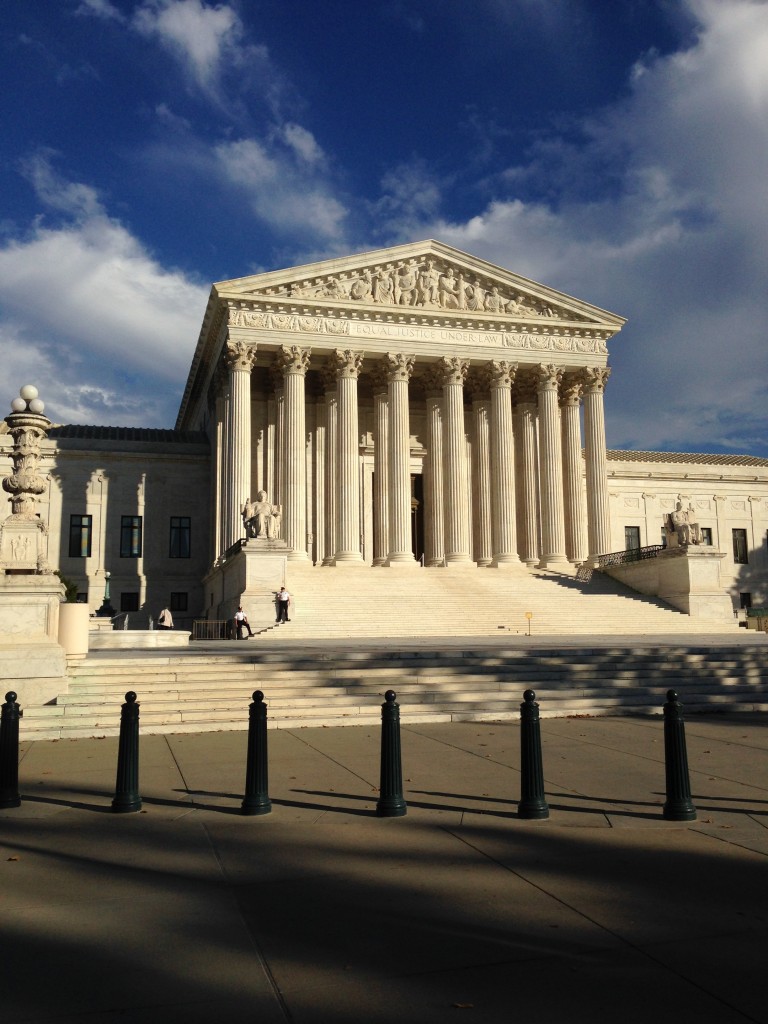Originally published by John Floyd.

A former Honolulu police chief has been charged with a litany of offenses, including bank fraud, identity theft, obstruction of justice, and a conspiracy involving several other police officers.
He faces federal charges following a federal grand jury indictment which was recently amended by federal prosecutors which made no mention a mailbox heist that was part of the original indictment. Defense attorneys in the case first thought that this charge had been dismissed, but later discovered that the mailbox case was still active – prosecutors had simply divided his charges into two separate trials.
Is this legal? Will defense lawyers be able to use this strange maneuver to help their clients?
Only time will tell in this specific case, but this peculiar legal move underscores the complexity of the federal court system. Federal courts have their own way of doing things, and federal rules of criminal procedure are complex, as is federal criminal defense.
Below, we’re going to break down the process of federal criminal prosecution, and what defendants can expect at each stage.
Investigation
The Federal Government has a number of agencies that investigate potential crimes, collecting and providing relevant information and evidence to U.S. attorneys. You have likely heard of many of these agencies. For example, the FBI.
The investigation may include both a search warrant and arrest of the suspects. In order to search a suspect’s home, clothing, computer, or other property, investigators must have a search warrant. Once there is probable cause to do so, the suspect will be arrested.
Charging
Once federal prosecutors have reviewed the evidence for the alleged offense and spoken to witnesses or other persons of interest, they will determine whether to bring the case to trial. If they decide to try the case, the suspect will be charged, or indicted, with the crime.
The defendant is given formal notice that he is being charged with committing a crime, known as the indictment. This contains basic information about the alleged offense and the charges being brought.
Arraignment
Shortly after the arrest and indictment, the defendant goes before a judge for an initial hearing, known as an arraignment. The arraignment provides more information about the charges, and the judge makes a ruling on whether the defendant will be held in jail or released until the trial.
Discovery

Federal prosecutors conduct an enormous amount of research prior to trial. This can include reviewing evidence, interviewing witnesses or other relevant persons of interest, assessing potential problems that could arise over the course of the trial, and developing a trial strategy.
Prosecutors must also provide the defense with a copy of the materials and evidence that will be used in the trial. This is known as discovery.
Plea Bargaining
Prior to the trial (and even throughout), the prosecution may offer the defense a plea deal to avoid the trial and perhaps lessen the charges and potential sentence faced by the defendant. This is known as plea bargaining. If the defendant enters a guilty plea, the trial does not take place, and the next step is the sentencing hearing.
Pre-Trial Motions
Before the trial begins, the prosecution and defense may file pre-trial motions to ask that the court make certain decisions prior to beginning the trial. Motions can affect how the trial proceeds, procedures in the courtroom, defendants charged, evidence presented, allowed testimony, and more.
Prior to beginning the trial, the judge will issue a ruling for any pre-trial motions filed by the defense or prosecution.
Trial
Weeks, months, or even years after the investigation was initiated, the trial will begin. This is when the facts of the alleged offense are presented to the jury, which then issues a guilty or not guilty verdict.
Federal trials include the following elements:
- Jury selection: A panel of jurors is selected by the prosecution and defense.
- Opening statements: The prosecution and then the defense give a brief opening argument to briefly state their respective accounts of the case.
- Presentment of case: The prosecution and subsequently the defense present their cases. This can include presentation of evidence, witness testimony, and cross-examinations.
- Objections: As the case is presented, both the prosecution or defense can make objections to a piece of evidence or question asked of a witness. The judge then makes a ruling on the objection.
- Closing arguments: After the case has been presented, the prosecution and subsequently the defense make a final statement to the jurors, which is the final chance to speak to the jury.
- Jury deliberations: After meeting with the judge, the jury moves to deliberation to decide the outcome of the case. For federal cases, the jury must decide unanimously to convict the defendant. Once a verdict has been reached, the jury informs the judge, defendant, and lawyers of the verdict in court.
- Post-Trial Motions
- If convicted, the defendant has the option to file post-trial motions to ask for a new trial, acquittal, or a motion to correct a sentence.
- Sentencing
- Several months after a guilty verdict, a sentencing hearing is typically held, in which the judge issues the sentence for the offense. The sentence is determined using federal guidelines, and after taking factors such as victim statements and the crime’s nature into consideration.
- Appeal
- If the defendant believes that they were wrongly convicted or that the sentence was unduly severe, they can appeal this decision to a circuit court. A circuit court judge then issues a ruling.

Your Best Chance at a Positive Outcome Is to Work with a Knowledgeable Federal Crimes Lawyer
Despite some similarities, federal cases possess distinct differences that set them apart from those tried at the state level. To have the best chance at getting your charges reduced, dropped, or dismissed, you need someone on your side who understands exactly how they work.
Our firm not only knows the process, we have a track record of success in dealing with some of the toughest federal cases around. Learn how we can help you by giving our office a call today.
The post Complex Hawaii Case Raises Questions about Federal Criminal Procedure appeared first on .
Curated by Texas Bar Today. Follow us on Twitter @texasbartoday.
from Texas Bar Today https://ift.tt/2t5DXMW
via
Abogado Aly Website
 To highlight some of the posts that stand out from the crowd, the editors of Texas Bar Today have created a list from the week’s blog posts of the top ten based on subject matter, writing style, headline, and imagery. We hope you enjoy this installment.
To highlight some of the posts that stand out from the crowd, the editors of Texas Bar Today have created a list from the week’s blog posts of the top ten based on subject matter, writing style, headline, and imagery. We hope you enjoy this installment.




 In conclusion, this ruling will have immense consequences. It forces parents to defend cases against third parties they should not have to defend. In many situations, it is likely the third party- especially a grandparent- will have more financial resources, which unfortunately makes a difference in custody battles. If the courtroom wasn’t crowded before, it is now about to be.
In conclusion, this ruling will have immense consequences. It forces parents to defend cases against third parties they should not have to defend. In many situations, it is likely the third party- especially a grandparent- will have more financial resources, which unfortunately makes a difference in custody battles. If the courtroom wasn’t crowded before, it is now about to be.
 In a further victory for privacy, the U.S. Supreme Court has ruled police must obtain a warrant to use cellphone locational data in the tracking of criminal suspects.
In a further victory for privacy, the U.S. Supreme Court has ruled police must obtain a warrant to use cellphone locational data in the tracking of criminal suspects.
 Few employees realize that when they take their employers’ trade secrets with them when leaving their jobs they may be exposing themselves to criminal liability under the Economic Espionage Act, which makes it a crime to steal trade secrets when: (1) the information relates to a product in interstate or foreign commerce (which is virtually any product now days) or (2) the intended beneficiary is a foreign power.
Few employees realize that when they take their employers’ trade secrets with them when leaving their jobs they may be exposing themselves to criminal liability under the Economic Espionage Act, which makes it a crime to steal trade secrets when: (1) the information relates to a product in interstate or foreign commerce (which is virtually any product now days) or (2) the intended beneficiary is a foreign power.  The State Bar of Texas’ Jury Service Committee is seeking feedback from people summoned to jury duty about their experiences.
The State Bar of Texas’ Jury Service Committee is seeking feedback from people summoned to jury duty about their experiences.




